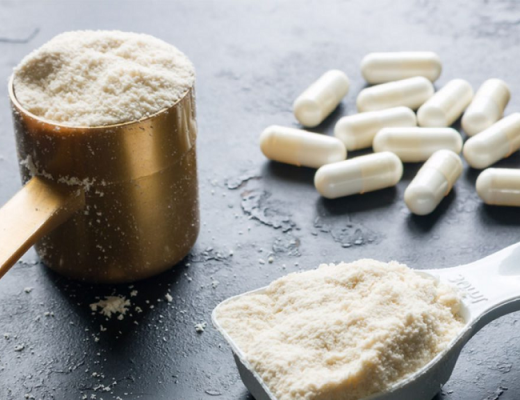For those living with ADHD, every day can feel like a mental balancing act. Tasks that seem simple for others—staying organized, finishing projects, even listening during a conversation—can become uphill battles against distractions, impulsivity, and mental fatigue. Prescription medications like Adderall and Ritalin have long been the frontline treatment, but they’re not the whole story. In recent years, many people with ADHD have turned to brain supplements, or nootropics, as part of a broader cognitive support strategy.
These supplements aren’t a replacement for medication. Instead, they’re being explored as tools that can complement or, in some cases, provide alternative routes to focus, emotional regulation, and mental endurance—especially for those seeking options outside the pharmaceutical track or trying to reduce dependency on stimulants. But which supplements actually help, and what should you watch out for?
Understanding ADHD and the Cognitive Terrain
ADHD (Attention-Deficit/Hyperactivity Disorder) is a neurodevelopmental condition marked by persistent patterns of inattention, hyperactivity, and impulsivity. It affects both children and adults and manifests differently across individuals.
Core Challenges in ADHD
- Executive dysfunction: Difficulty organizing, planning, and managing tasks.
- Working memory deficits: Trouble holding and manipulating information over short periods.
- Emotional dysregulation: Intense emotional reactions, mood swings, and frustration intolerance.
- Attention regulation: Not just about staying focused—also about switching attention at appropriate times.
These symptoms stem from irregularities in neurotransmitter systems—particularly dopamine and norepinephrine. Traditional medications target these pathways, but nootropics may offer gentler support by working alongside these systems rather than overriding them.
Why Consider Brain Supplements for ADHD?
Many individuals seek brain supplements for ADHD for reasons like:
- Managing side effects: Some people experience insomnia, appetite loss, or emotional blunting from prescription meds.
- Supplementing low-dose treatment: Adding cognitive support to a partial-dose regimen.
- Seeking non-pharmaceutical options: Particularly for children, or adults avoiding stimulant use.
Brain supplements may enhance focus, memory, and mood regulation in ways that align with ADHD’s core cognitive challenges—without pushing the body into a hyperstimulated state.
Top Brain Supplements for ADHD Support
1. L-Tyrosine
L-Tyrosine is a precursor to dopamine, one of the neurotransmitters most implicated in ADHD. Supplementing with L-Tyrosine may help restore depleted dopamine levels, especially under stress or sleep deprivation, improving focus and mental stamina.
2. Citicoline (CDP-Choline)
Citicoline supports the production of acetylcholine, a neurotransmitter essential for attention and working memory. It also helps maintain healthy brain cell membranes and improves energy metabolism—offering subtle but noticeable cognitive sharpening.
3. Omega-3 Fatty Acids (EPA/DHA)
Research has consistently shown that individuals with ADHD often have lower levels of omega-3s. EPA, in particular, appears to support emotional regulation and reduce impulsivity. Supplementing with fish oil or algae-based omega-3s can benefit mood and attention span over time.
4. Rhodiola Rosea
This adaptogenic herb reduces mental fatigue and improves stress resilience—helpful for ADHD-related emotional overwhelm. It may also support mood stability and reduce cognitive crashes after periods of intense focus.
5. Magnesium
Magnesium helps regulate nervous system function and supports relaxation. It’s particularly helpful for individuals with ADHD who experience tension, irritability, or sleep problems. Magnesium L-threonate is a form known for crossing the blood-brain barrier more effectively.
6. Bacopa Monnieri
Bacopa is an Ayurvedic herb that enhances memory, attention span, and verbal learning. Its effects are gradual, usually taking 4–6 weeks to become noticeable, but it’s well-tolerated and particularly useful for children or adults with inattentive-type ADHD.
7. Zinc
Zinc plays a key role in neurotransmitter regulation and synaptic signaling. Studies have shown that zinc supplementation can enhance the effects of stimulant medication and improve focus and impulse control in children with ADHD.
Case Profiles: How People Are Using Nootropics for ADHD
Case 1: Stimulant Weaning and Focus Restoration
Rachel, a 31-year-old marketing executive diagnosed with ADHD in her teens, began tapering off Adderall due to increasing anxiety and insomnia. With guidance from her physician, she introduced a nootropic stack: Citicoline for focus, Omega-3s for mood support, and Rhodiola for stress. After two months, she reported fewer crashes and more consistent energy—along with manageable focus without meds.
Case 2: Support for a Child with Inattentive-Type ADHD
Ben, age 10, struggled in school due to daydreaming and forgetfulness. His parents were hesitant about pharmaceutical interventions and worked with a pediatric specialist to try a natural protocol. Bacopa, Magnesium L-threonate, and EPA-rich fish oil were introduced. Teachers noticed improved attention and fewer lost assignments within two months, and Ben himself said he “felt less scrambled.”
How to Use Brain Supplements Safely and Effectively
When considering brain supplements for ADHD, personalization is key. What works for one person may not work—or could even backfire—for another. Here are best practices:
- Start low and go slow: Introduce one supplement at a time to gauge effects and tolerability.
- Cycle and track: Use journals or apps to monitor changes in focus, energy, and mood.
- Consult a healthcare professional: Especially important for children or when combining with medications.
- Choose quality: Use third-party-tested supplements from reputable brands to avoid contaminants or inaccurate labeling.
Also, remember that supplements are tools—not solutions. They work best when combined with structure, mindfulness, therapy, and healthy routines that support ADHD management holistically.
Beyond Pills: Lifestyle Strategies to Amplify Results
No brain supplement will fix ADHD in a vacuum. For best results, pair nootropics with these supportive strategies:
Routine and Structure
- Use calendars, checklists, and reminders to create external scaffolding for executive function.
- Break tasks into small, manageable chunks with built-in rewards.
Movement and Exercise
- Regular aerobic activity increases dopamine and reduces restlessness.
- Short bursts of movement between tasks improve focus and mood.
Mindfulness and Breathwork
- Simple techniques like box breathing or guided meditations help with emotional regulation and impulse control.
- Even 5–10 minutes a day can build calm awareness over time.
Smart Support Beyond the Prescription Pad
ADHD affects the way a brain filters, organizes, and responds to the world. For some, medication is a vital part of treatment. For others, or in combination, brain supplements may offer a gentler way to support focus, clarity, and emotional balance. With thoughtful use and guidance, nootropics can be valuable allies in the ADHD toolkit—especially when paired with structure, movement, and emotional awareness.
The goal isn’t to become a robot or force unnatural focus. It’s to create a mental environment where attention can thrive, emotions can settle, and individuals with ADHD can show up fully—as the creative, driven, vibrant minds they are.



